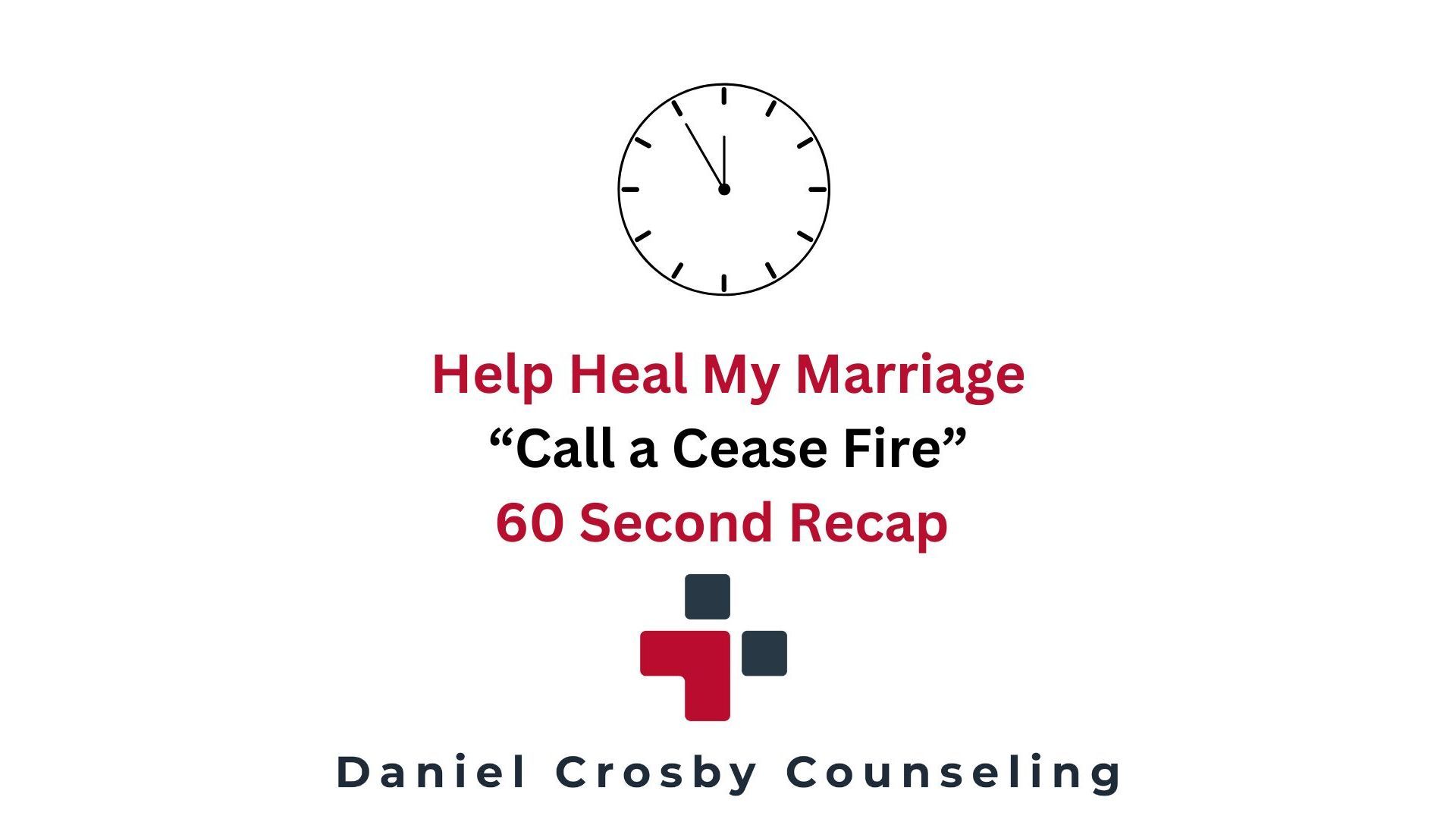I meet a lot of wives that complain that their husbands are empathy challenged.
I’ve joked that God 1st made Adam and then 2nd he made Eve. She was version 2.0. She had extra features and some more complex circuitry.
All joking aside, while empathy is harder for some, it can be learned.
Men, I want you to try this. It’s not one size fits all, but these are ideas that have worked for others. It takes practice, but it will be worth it. If your wife has ever said, “I want you to pursue me (nonsexually),” this is one way to show her that you’re trying to do that.
Ladies, if you read this, laugh, and say “That crazy counselor is clueless!,” that’s great! Read this with your guy and then help him understand a better way he can show you empathy. He really does want to understand and do it better, but he needs a roadmap.
Here’s your crash course guys!
Dr. Theresa Wiseman* gave us one roadmap in her 4 attributes of empathy:
1. See the World as Others See it*
This is all about perspective. We must first recognize our emotions, worldviews, and biases and then get past those so we can see our wives’ perspectives.
Ask yourself:
“How would I feel if I was in her shoes?”
“What does she value?”
“What are her fears?”
“How does she measure success?”
Hint: The answer to these may be very different from your answers to these questions and that’s OK!
2. Understand Another’s Current Feelings*
This is all about recognizing the emotion your wife is feeling and labeling it correctly. A lot of men sigh and admit that they aren’t good at this. That’s ok, sometimes it can be just as meaningful to your wife if you just ask her how she feels.
Here’s a sample conversation:
Husband: “How are you?”
Wife: “I had to get the kids off to school, then go to work, then my coworker came in and wouldn’t stop talking, then my mom called…”
Husband: (Recognizing that she just listed a bunch of things in an exasperated tone). “Wow, that’s a lot. So how are you FEELING after all that?”
Wife: “I don’t even know. Exhausted, Overwhelmed, Hopeless, Frustrated, Annoyed, Scattered!”
Husband: “Well I’m glad you’re home. I’m sorry it’s been such a difficult day. What if I deal with most of the home stuff tonight so we can get it squared away and maybe we can relax earlier than normal?”
The husband, not knowing how his wife feels, simply asked. Then, once he knew the feeling, he could react to it and help alleviate some of her burden.
3. Non-judgmental*
Guys, this is where we shoot ourselves in the foot. When we jump to “fix it” mode, sometimes we unintentionally communicate that we know how to deal with life’s frustrations better than our wives do. This leaves them feeling like we’re judging them. If you’re coming across as an expert and giving advice without being asked, then you risk coming across as judgmental. Rather than being the expert fixer try becoming an expert detective. Expert detectives ask great questions and search for factual evidence.
Good questions to ask and then LISTEN for her response:
“What is the hardest part about this for you?”
“What do you wish was different about this situation?”
“What do you think the best next step would be to make it better?”
Hint: A great follow up question after your wife answers these questions is, “What else?” Rarely do people give a full response on their first response. Asking, “What else?” tells your wife that you’re listening, engaged, and not just looking for a quick resolution so you can escape the conversation. You are wanting to go deeper into it with her.
4. Communicate the Other’s Feelings*
The opposite of being judgmental is validation. The question I get here is, “But Daniel, what if I don’t agree with what my wife is feeling given the situation?” Good news! You don’t have to agree with someone’s feelings to validate them. For instance, I don’t agree when someone has decided to cheat on their spouse, but after hearing their story, I can validate the loneliness, sadness, depression, and hurt that they must have felt to get to the point of making that decision.
Situation – A wife is venting to her husband that she’s stressed because she said “yes” to 3 friends’ events all in the same day.
Wife: “Today sucks. I feel like I’m failing everyone, and I’m being pulled in so many directions.”
Husband: “I’m sorry it’s been rough today. I know it’s important to you to let everyone know that they matter. I love how you care about all your friends and want to make them feel special. It has to feel exhausting to be doing this much and still feel like you aren’t winning.”
What we want is to feel like someone connects with us. Afterall, the thing worse than hurting is hurting alone.
Shoot me an email or message and let me know the best ways you’ve found to show empathy to your significant other.
* Wiseman, Theresa. (1996). A concept analysis of empathy. Journal of Advanced Nursing. 23. 1162 - 1167. 10.1046/j.1365-2648.1996.12213.x.



All Rights Reserved | Daniel Crosby Counseling

